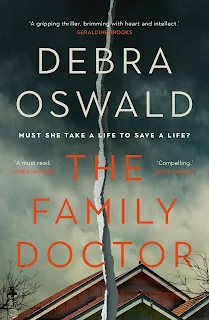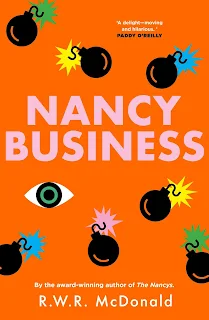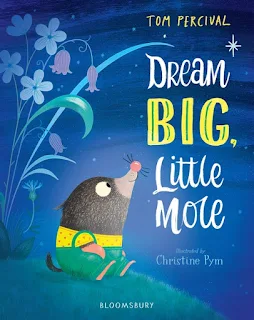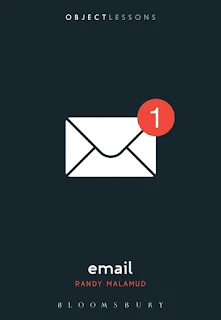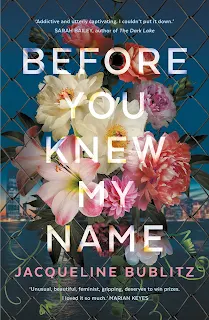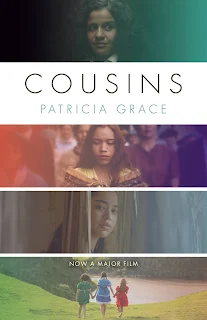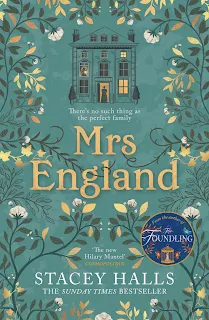 |
Jacqueline Bublitz
Credit: The Virtue |
Before You Knew My Name is the 'it' book of the moment, setting aside the perpetrator-led style of narrative in favour of a crime novel that gives agency back to the victim. Australian author Jacqueline Bublitz joins me to answer some questions from New Zealand, where she's been since the pandemic began.
Welcome to Carpe Librum and congratulations on your debut crime novel Before You Knew My Name.
Thank you for your support! It’s been an amazing ride so far, though I still sometimes struggle to believe this is real life.
Is it true your manuscript was the subject of a bidding war?
Before I was on submission, I’d heard terms like ‘auction’ and ‘bidding war’ and it all sounded very serious (and exciting). I love the business side of things, and it was exciting when multiple publishers showed interest in the manuscript, though thankfully it doesn’t get very war-like, ha. Everyone was so generous with their vision for the book, and I feel incredibly fortunate to have this as my first experience of the industry. It does help to have an incredible agent on your side, and mine is the best of the best.
How do you think you'd react if you found the remains of a victim of crime?
When she finds Alice’s body, Ruby’s reaction is one of frantic desperation, and I never wrote those scenes any other way – which makes me think that is how I might react in a similar situation. I imagine you’d go into shock at first, and there would be this grasping for what you’ve seen in all those TV shows, a kind of scrambling around for what to do, how to help. My instinct is that you really would feel a connection to the case, and to the victim. What little research I could find on people who have discovered the bodies of murder victims does seem to suggest that.
I read that you visited morgues in New York when researching your book. How is this kind of visit arranged? What impact did it have on you?
A more accurate description would be that I totally lurked around a morgue in New York. A police officer I’d met told me to go down to 1st Avenue, to OCME (Office of Chief Medical Examiner), where he said they take unidentified bodies. I had no credentials or any legitimate reason to be there, so I mostly spent a lot of time in the area, checking out the neighbourhood. There used to be a psychiatric hospital, Bellevue, next door and the buildings have that kind of creepy, historic beauty that makes you half-expect to see a face pressed up against one of the barred windows, you know? The morgue itself is fairly ordinary, though I only ever made it to the lobby. I knew no one was going to let me go downstairs, so I just people-watched and soaked up the atmosphere, and then got asked to leave when I wanted to take some photographs!
I did make friends with a mortuary embalmer from Brisbane, however. So, I had lots of wonderful, detailed notes from her to help describe Lennie’s work, while my own experiences were better suited to Ruby’s awkward encounter when she goes looking for Alice at the morgue.
I really enjoyed the inclusion of the online sleuth community in your book and would love to know more. Are you a member of any true crime forums? Do you think you would make a great online sleuth? Do you believe web sleuths help or harm investigations?
I can see how addictive it would be! I never joined any, but a co-worker who was involved in some of these communities introduced me to the most active forums, and I loved lurking about (so much lurking with this book!), reading all of the theories and analysis put forward.
I’m not sure I’d make for a good online sleuth because you probably need a little more patience than I have. I did always want to be a private investigator though, like Laura Holt from
Remington Steele, so the desire is there. But I’d have to do stakeouts on foot, because I don’t drive.
As to whether I think web sleuths help or harm, I think bringing attention to cold cases in particular might help, even if it’s in tangential ways. The idea that someone knows the truth is what fascinates (and frustrates) me with these cases, so keeping the conversation going around crimes that might otherwise be forgotten can only be a positive thing. And just look at the work Michelle McNamara did with helping draw attention to the so-called Golden State Killer through
I’ll Be Gone in the Dark. That book was such an inspiration to me.
I was late to the party, but I enjoyed I'll Be Gone in the Dark too. You mention in your bio that you're an arachnophobe and I'm dying to ask you about that. I fear spiders too and after experiencing nightmares for years, I found hypnotherapy helpful in managing the phobia. How does your phobia affect you?
Arghhh! It’s so bad I can’t even imagine getting help. Because I just know it would involve direct contact at some point. So, bravo to you for what I’m too scared to do! It’s a bit easier here in New Zealand, where the spiders still have all the legs, but they don’t tend to be the size of my hand. I have even managed to capture a few Kiwi spiders and put them outside, which is a massive step forward for me. I don’t hate spiders, and I get annoyed at myself, but the reaction is just so visceral. When I’m in Australia, it means I refuse to go camping, and I am always on high alert in places like Byron Bay. And I always flick down the visor in cars before I get in. Little things like that, and thankfully very few nightmares, which tend to be populated by roving lions instead. Which is a whole other story.
Thankfully I didn't need to do any direct contact, and was only exposed to drawings and images, but it was enough to make a difference so definitely well worth it. Before the pandemic, you were living between Melbourne Australia and the North Island of New Zealand. How has the inability to travel back to Australia impacted your writing career and your life?
I moved to Melbourne when I was 18 and stayed for over twenty years, so I always say it’s the place that grew me up. I used to travel back to New Zealand to see family every year, and only moved home when my dad got sick. I assumed it was temporary – and then it wasn’t. My last trip to Melbourne was February 2020. I’d just signed with my agent in the UK, and I remember telling my friends I’d be back within three months. Covid had other plans, and still does – I was meant to come back to Melbourne the first week of June, some sixteen months after I left. I’m conscious that I have little to complain about; I’ve been very lucky to be in regional New Zealand during a pandemic, and the publishing industry has adapted extraordinarily well to how remote we all are these days. That said, I miss my friends desperately. They were with me through so many of the ups and downs of my writing career, and I can’t wait to throw them all a big party to say thank you for their belief in me, even when I wasn’t so sure of myself. Soon … soon!
Has the pandemic changed your reading or writing habits in any way?
Honestly, most of the big changes in my life happened the year before, in coming back to New Zealand, and helping to nurse my dad. The pandemic, at a personal level, has often felt like an extension of that time. Back then, I was drawn to books and TV shows that were all about connection, and perhaps unsurprisingly, life being upended in some way.
Schitt’s Creek and
Younger are perfect examples of what I think of as my ‘grief genre’, and they both got me through some tough times, because for a while there, I struggled to write, and it was hard for any book to hold my attention. But when I did start writing again, I couldn’t stop. I guess everything had been bottled up, and then it just poured out.
When it comes to the pandemic – or any kind of trauma – and creativity, I hope people are being kind to themselves. If you have periods where you’re not creating anything at all, that’s okay. Do something to nourish yourself, instead. Until you’re ready. Because what’s for you will never go by you, I really believe that (and I really should learn who that’s attributed to, because it’s one of my favourite sayings).
Is there a book by a Kiwi writer you believe deserves more attention?
Oooooh, good question! In terms of current releases, I would say that everyone should pick up a copy of Michelle Langstone’s beautiful book of essays,
Times Like These. The writing is just so elegant, and honest. I also love that a book like
Cousins, by one of our most celebrated writers, Patricia Grace, has just been turned into a gorgeous film, nearly 30 years after it was first published.
What's on your bedside table right now?
A book of essays by Audre Lorde, a late-blooming flower from my parent’s garden, and an old race book of my dad’s, from the 1960 Melbourne Cup.
What can you tell us about your next novel?
I’m editing at the moment, which is fun, because I love seeing everything come together, and finding all the little gifts past-me left for current-me to find! Thematically, this new story has quite a lot in common with
Before You Knew My Name, although it’s set in small-town New Zealand, not big city New York. It deals with life, and death, and ghosts (maybe!), and there’s a really nice love story in there. I genuinely like these new characters, which feels like a good start.
Oooh, I love a book with ghosts, sounds great! Anything else you'd like to add?
Just a big thank you to readers and bloggers, and this incredibly welcoming community. I feel very, very lucky that
Before You Knew My Name has been embraced by so many people, and I love all the insightful responses and reactions to Alice’s story (I still try to read all the reviews). It’s a book I poured my heart into, and this has been the most gratifying experience. When it’s not terrifying, ha!
Thanks so much for joining me Jacqueline and good luck for the next book! To find out more, visit www.jacquelinebublitz.com


